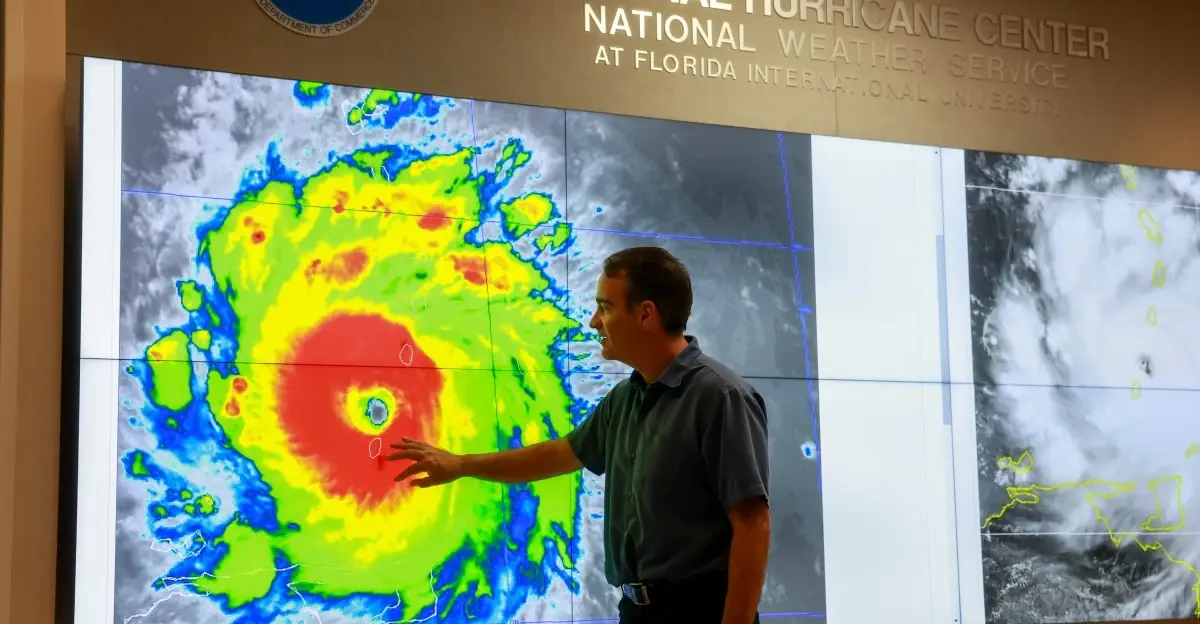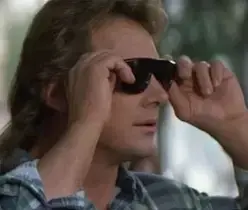
This is an example of the
terrifyingextreme storms scientists have been expectingNo one at NOAA was looking specifically for Beryl.

It’s true that scientists were expecting that tropical cyclones would evolve like this with climate change, and I’m hoping we can expand on building those mutual aid networks needed post-storm in the most vulnerable communities. Between the threat of storm surge and the flooding due to torrential rains and monsoons, it’s gonna be a doozy of a task to deal with all this moisture. If we can’t manage storm water and waste water systems, or keep installing permeable surfaces, planting mangrove forests, and other mitigation/adaptation measures, we’re going to see a major public health crisis erupt from lack of access to resources, mold that causes airborne illness, wastewater exposure, and more. Not to be negative, but I just don’t see much support for addressing this because there’s so much political theater that jams airways. Anyone that could help from a governmental standpoint with grants and incentives to mitigate are too busy with bickering and personal gain.
It’s time we take matters into our own hands and establish mutual aid networks ourselves. This means getting to know your neighbors, where to share resources, how to gain access to water filtration and rain water collection, establishing community gardens, clean/renewable energy generation, transportation, communication, and ensuring elderly and differently-abled persons have an action plan when these events happen… and they will more often.
I hope to use this platform and social media in this way. We must start planning to take care of ourselves and our communities, and do away with “every person for themselves” because that just doesn’t work anymore.

I agree with everything you’ve said, just one tip: please don’t call us “differently abled”, we’re disabled, and there is nothing wrong with calling us that.
Otherwise, thank you for actually including us in the first place, not many people do.

Thank you for this education. My goal is always centered in respect for all and I appreciate you. In the spirit of the point of mutual aid networks, what do disabled folks need in times of crisis or extreme weather, in your opinion? I know the spectrum of needs is vast and varied, but I’m always seeking to learn more, should you or others wish to share!

So clearly I don’t speak for all disabled people, and as you say, and as is with any group, the needs of disabled people are individual and can change depending on many factors, so I don’t know if I can really give a conclusive answer to that.
You do touch on respect, and that’d probably be the top priority (and again, probably applies to interacting with all people) - we don’t need saviours, we need comrades. Respect the individual and their boundaries, they know themselves better than you do, and if they say no to something, trust that they know what’s best and back off without taking personal offence (and if helping is contingent on someone being nice and eternally grateful - don’t do it. Only help another person because you want to help them, not because you’re looking for praise and adoration. Not saying you’d do this op, but far too many do - like people who grab your wheelchair and push without asking or being asked and then get angry when you ask them to stop).
I think other than that, the main almost universal one would be electricity. Even if someone doesn’t depend on it to power life sustaining machinery and/or aids (and many do), or seems like they immediately need electricity to survive, things like maintaining and controlling bodily temperature can be difficult or even impossible for some, so things like air conditioning, or heating pads (which are also vital for many for pain management), are essential (E: also, communication devices!). So having portable generators or other alternative sources of backup power in case of emergency can be a huge help.
Beyond that, the only way you can know is to get to know the disabled people in you community, build relationships friendships and trust, listen to them and let them know you’re there to offer help and support if they need it. If they feel safe and comfortable, they will come to you when and if they need it.

Dang, this reply is chock full of truth and good reminders. I fully agree with the need for helping with no strings attached, and it harms others when the help comes with stipulations. You also reminded me that it’s important to outwardly recognize that everyone has a strength, so ensuring people can exercise that talent in a safe space is what enriches and sustains a community. Also most importantly, you mention a reliable communication device, plus electricity access – such good points to keep in mind as we find ways to connect folks that are overburdened from climate change and other systemic pressure with these resources. Amazing, thank you for this!

I’m really glad you’ve found the information helpful, this kind of consideration and inclusion can only make a community stronger.
Just one more point I think I should have included: not all disabilities are visible - from autism to PoTS to chronic pain to mental illness, some people might look perfectly abled but actually face many barriers and challenges, so remember to include them too (and again, not that you would, but in general - don’t doubt or question someone’s disability, like questioning why someone who doesn’t “look disabled” parks in a disabled bay or uses the disabled toilets or can’t stand in a queue but needs to sit even if they look young and fit. Not being visible doesn’t mean whatever it is isn’t having a massive impact).
Anyway, I’ve rambled on enough, and you clearly get it, so I’ll end on a - solidarity, comrade!

Solidarity, comrade! All of your comments are welcomed - not a ramble at all. Excellent points, and doubly so for me because several of my loved ones identify with having “invisible” disabilities.

This was a refreshingly positive exchange, thank you, I appreciate it!

My neighbors vote against doing anything positive like holding companies resposible and making them change their practices to fight climate change.
Fuck 'em.

I share your frustration as I’m from a red state. Say you didn’t have such selfish and unfortunately ignorant neighbors - would you feel differently about engaging them?

Yes.
In fact I used to help them out before knowing how horribly racist and sexist and selfish they are.

I’m sorry to hear that. It sucks to be burned by people when you’re just trying to do the right thing. I keep wanting to hold out hope that we can, against all odds, find ways to build bridges where it seems impossible. Maybe it’s not quite there yet, but I’m hoping they can see the writing on the wall sooner or later. Say if they experience one bad weather event, maybe they put hate aside and really start acting on addressing climate change. Not all of them will be convinced, but I’m seeing the tide change for the better and that’s reason enough for hope to remain alive for me. My wishes for you too to stay hopeful, friend.

Oh, hello Terryfing Storm, please come in, would you like some tea? Biscuits?

As in “come in, Mr Bond. I’ve been expecting you.” ?


